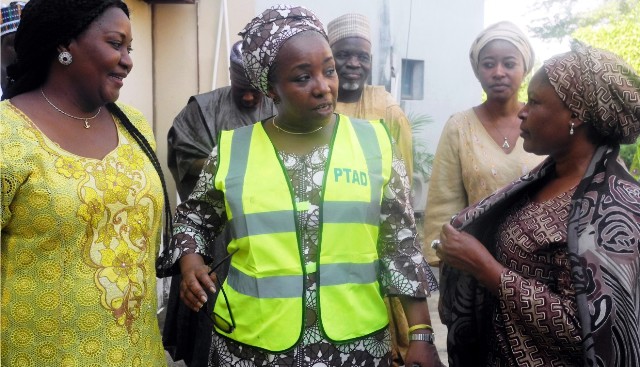Business
Missing petrol: Capital Oil Wants Accounts Reconciliation

Ifeanyi Ubah, the chairman of Capital Oil and Gas Industries Ltd has called for a reconciliation of the company’s account with the Nigerian National Petroleum Corporation (NNPC).
Ubah, made the call on Sunday in Lagos, in the wake of the allegation by the NNPC that his company could not account for 100 million litres of petrol stored in its depot in Lagos.
The NNPC similarly accused the MRS, but said the company had returned 30 million litres that it initially diverted.
Ubah described the allegation against his company as mischievous and misleading.
Ubah said the NNPC also failed to tell the public that it also owed Capital Oil billions of Naira from their mutual business transactions.
The NNPC had on March 17 said that it would take full measures to recover about N11 billion worth of Premium Motor Spirit (PMS) which it stored in the facilities of Capital Oil and Gas Ltd in Lagos.
“It is normal for parties in businesses to owe each other in business relationships and that if reconciliation is carried out with the NNPC, the firm will find out that there may be very little or nothing for Capital Oil to pay the corporation.
“In the last four months, NNPC has borrowed products running into millions of litres from Capital Oil,’’ Ubah claimed in a statement made available to newsmen.
He said the management of NNPC should have called for account reconciliation by both parties before forging ahead to issue a false statement alleging his company was owing the NNPC N11 billion.
Ubah said the NNPC should stop trying to use the media to kill him.
“We have an ongoing relationship and we need to sit down and reconcile our accounts.
“NNPC has a subsisting contract with our company which is on throughput basis. The corporation has consistently been in breach of our contractual agreement by owing us money for services rendered.
“Payments from NNPC for services rendered by our company has consistently been delayed for periods spanning over one year and remains unpaid till date.
“Currently, NNPC owes us for services rendered to the corporation at very critical periods to salvage nationwide fuel scarcity since 2015 (more than two years now), amounting to millions of dollars and billions of Naira,’’ it said.
“The corporation has failed to deliver products to us which were duly paid for.
“It is instructive to note that Capital Oil and Gas has trucked out over seven billion litres of petroleum products for the NNPC over the last few years making us their biggest partner in the downstream sector of Nigeria’s Oil and Gas Industry.
“We have written the NNPC severally, requesting for our outstanding payments and delivery of products duly paid for by us.
“Rather than honour our request, we are shocked that the corporation has resorted to this needless campaign of calumny, while refusing to make payments and deliver our products to us till date.’’
Ubah said the company respected the fact that NNPC was its biggest partner in the downstream sector and had always stood by the corporation, especially in times of product scarcity.
“We have proudly rendered intervention services at all critical times in the life of our nation.
“It is on record that few months ago, when the same NNPC had a serious break in its supply chain and in a bid to avert an imminent national scarcity, Capital Oil and Gas Industries Ltd lent the corporation millions of product to close the gap.
“It is our sincere hope that the corporation will respect our contract with it by paying all outstanding bills as well as deliver cargoes which have been duly paid for by us to end this situation.
“We view this as a deliberate attempt to stifle our business bearing in mind that in spite of its unfair treatment, we still manage to retain thousands of employees in this critical period of the nation’s economy where even banks and multinationals are retrenching.
“This act of strangulation has been reported by our company to the Nigerian Senate in a petition against the NNPC that was read on the floor of the Senate on Wednesday, 8th of March 2017.
“A similar petition was also submitted to the Economic and Financial Crimes Commission (EFCC) as well as the Department of State Services (DSS),’’ the statement said.
Transport
Automated Points Concession : FAAN Workers Gave 72hrs To Revise Decisions In PH

Transport
FAAN Announces Pick-Up Points for Go-Cashless Cards

Business
Fidelity Bank To Empower Women With Sustainable Entrepreneurship Skills, HAP2.0
-

 Politics3 days ago
Politics3 days agoSenate Urges Tinubu To Sack CAC Boss
-

 News3 days ago
News3 days agoAmend Constitution To Accommodate State Police, Tinubu Tells Senators
-

 News3 days ago
News3 days agoDisu Takes Over As New IGP …Declares Total War On Corruption, Impunity
-
Business3 days ago
President Tinubu Extends Raw Shea Nuts Export Ban To 2027
-
Business3 days ago
Crisis Response: EU-project Delivers New Vet. Clinic To Katsina Govt.
-
Business3 days ago
President Tinubu Approves Extension Ban On Raw Shea Nut Export
-
Sports3 days ago
NDG: Rivers Coach Appeal To NDDC In Talent Discovery
-
Rivers3 days ago
Etche Clan Urges Govt On Chieftaincy Recognition

